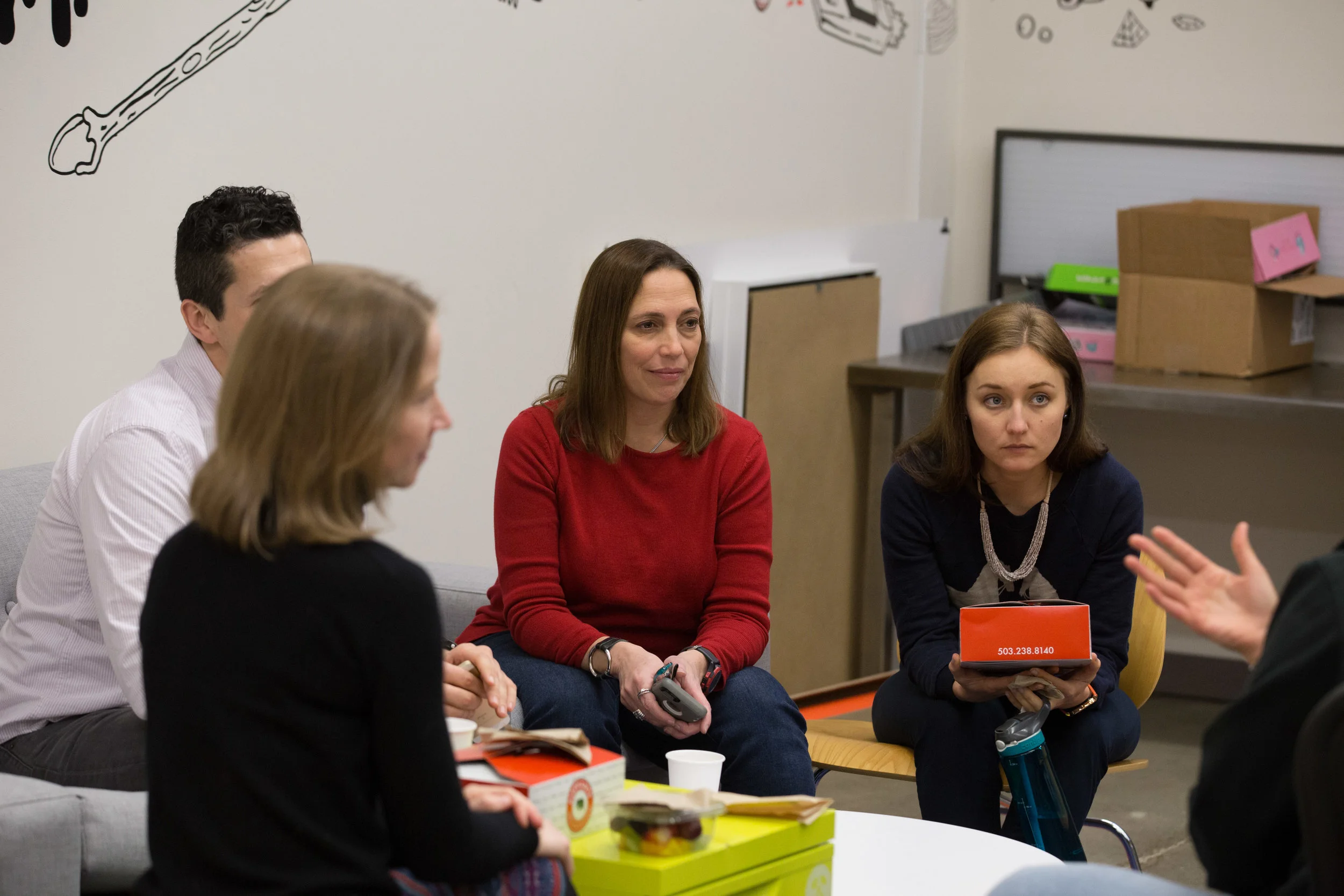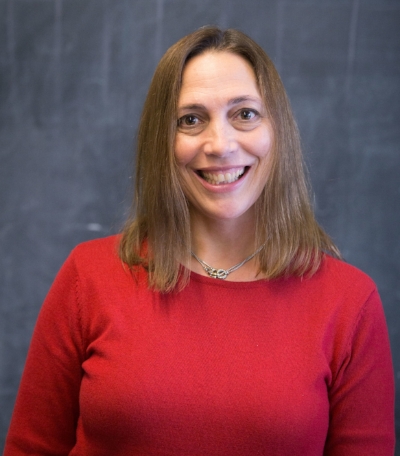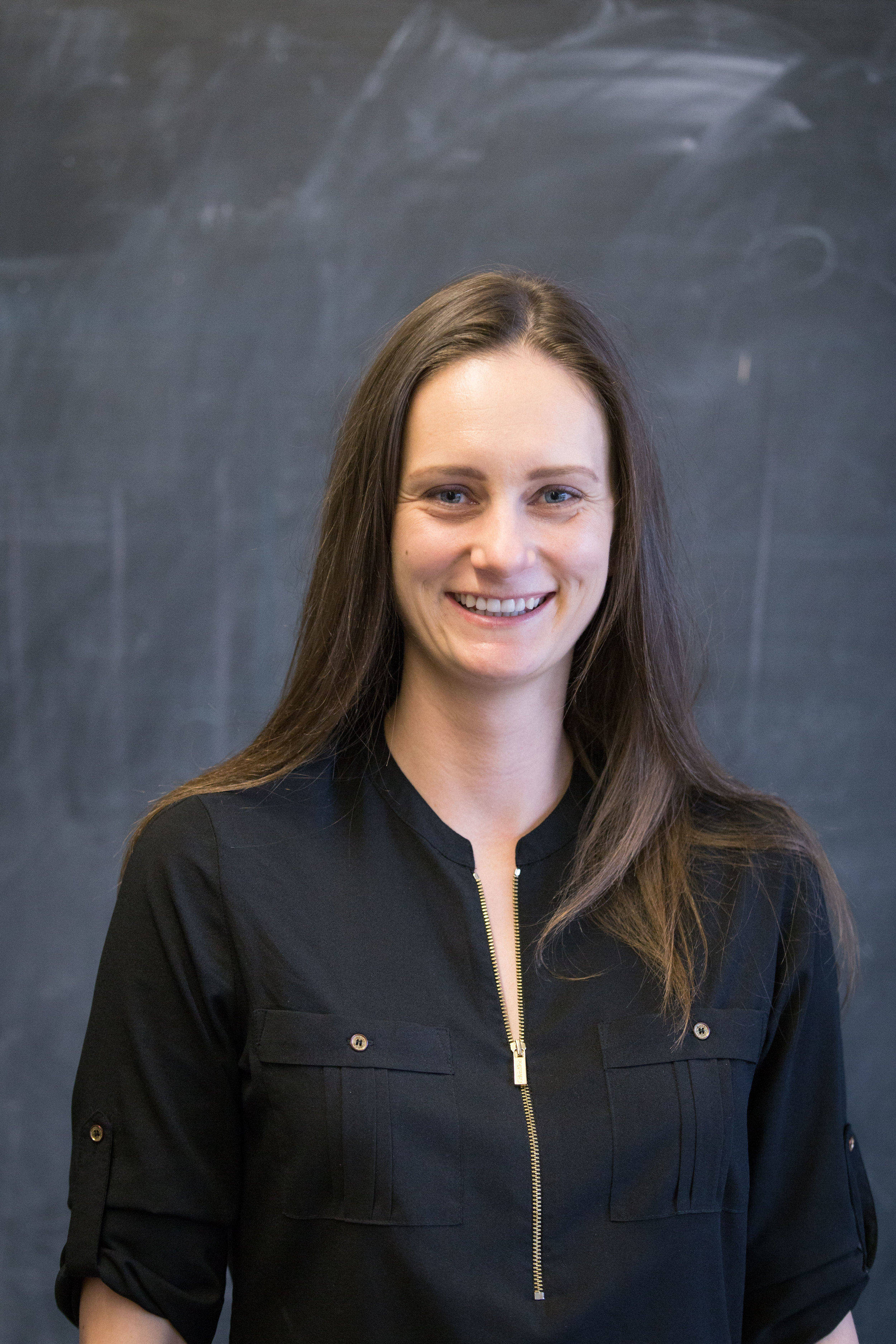Our Higher Education Innovation Fellows had their first three-day innovation workshop here at Switchboard HQ in Portland, Oregon two weeks ago. We were so thrilled to host so many curious minds that we couldn't keep it to ourself. We want to introduce this cohort of fellows and share some of the insights from the five HEIF faculty members who presented.
Salient insights
1. The problems facing higher ed are design problems
Dr. Bridget Burns
Perhaps the hardest thing about driving change—in any industry—is how defensive those of us on the receiving end of that change can be. When something has to change, we often feel that we're being told it's our fault that something is wrong in the first place.
The great thing about seeking changes in the design of systems is that it absolves individuals of blame and makes driving change that much easier, says Dr. Bridget Burns, executive director of the University Innovation Alliance. And higher ed is very much a system in need of changes to its design.
Jerry Michalski explains how 20th-century capitalism commodified trust.
2. Building trust is vital to the success of our institutions
As society evolved into the global capitalist market we know today, it had unfortunate side effects. Among them: The bonds of trust that bound people together were severed. The trust that remained was commodified. Now brands compete for our trust, while trust in our institutions continues to wane.
It's in that barren landscape that institutions of higher education must stand out, says Jerry Michalski, founder of REX. Cultivating trust with our students, alumni, and communities not only makes the relationships our institutions need to succeed stronger, it also promotes institutional behavior that is beneficial for all involved in the long term.
3. Listening is the first step in communication
Jess Columbo.
Communication is more than just, you know, saying things. The first step to any successful communications strategy is listening to your constituents. Jess Columbo, CEO and founder of Med|Ed Digital, shared lessons learned from her successes and mistakes running communications campaigns in healthcare and higher education.
Listening to the needs and desires of your audience isn't just something to do before you launch a new project, it's also a tool you can use to quiet and convert your angriest constituents when you make a mistake. Inviting your harshest critics to get involved will calm them and win new allies for your institution.
4. The job market is changing, and we need to adapt
April Rinne.
Today, 47% of millennials work gigs or freelance. That percentage is only going to increase. But we in higher education are primarily preparing students and young alumni for the workforce as we know it, not as it is or will be. While this new world offers flexibility and opportunity, our social safety nets are weak in the United States and this shift comes with many challenges. So says April Rinne, advisor, speaker, and writer.
This is an existential risk to higher education as we know it, but also specifically to how we engage with and serve our constituents. What place does career services have in a world where we change careers every other job—or don't really have jobs at all? What will our students and alumni expect from their alma maters?
5. Innovation is possible within even the most rigid institutions, but it means starting small
Michael Gursha.
In the world of startups, the acronym "MVP" gets used so much that it's a sort of mantra: minimum viable product. You want to develop, manufacture, or create as little as you can before you start testing it in the field—from there, you take what you learn and iterate. The sooner you get it to market, the sooner you can start improving it, the sooner you get from a minimum viable product to a maximum viable product.
Michael Gursha, CEO of RookieRoad and former entrepreneur-in-residence at Syracuse University, explained that developing an MVP and working from there is also the best way to innovate within stale systems in higher education. The smaller you start, the less approval and fewer resources you need, and the more viable your project proposal is when you are ready to begin formally.
These HEIF faculty will be returning in June to lead the first workshop for our summer cohort of fellows. You can learn more about the yearlong professional development fellowship for constituent-facing professionals here.
Meet the fellows
Dana Maze Ehrlich
Founder, Make Your Business Better | Alumnae Volunteer at Smith College
Dana is interested in better engaging alumnae and building ties with alumnae communities that are disengaged, improving volunteer and donor retainment, and rethinking alumnae career support.
Madeleine DelVicario
Program Coordinator, Office of Alumnae Relations, Smith College
Maddie is interested in breaking down silos within the institution, taking on racism and other biases in higher ed, and in empowering alumnae to feel that they can make a difference.
Yuliya Dennis
Director of Alumni Career Services, Oregon State University Alumni Association
Yuliya is interested in using technology to deliver services at scale to Oregon State's alumni population, and in learning how to innovate within a large, complex institution.
Julia Lapan
Director of Career Development, Center for Engineering, University of Virginia
Julia is interested in using design thinking to help students better plan their careers and to improve the experience of women students and students of color in higher ed.
Kayla McCulley
Director of Alumni Learning and Career Programs, Pomona College
Kayla is interested in solving the challenge of creating meaningful engagement in an increasingly busy, distracted society. She also wants to determine how best to measure the impact of that engagement on the lives of alumni.
Brittney Paulk
Fellow and Senior Research Analyst, University Innovation Alliance
Brittney is interested in innovating within higher ed to better reach and serve underrepresented and first-generation students and alumni. She wants to find design solutions to flawed institutional systems.
Andrew Wright
Director of Undergraduate Admissions, Concordia University
Andy is interested in solving problems caused by internal divisions and by a lack of external awareness. He is excited about bridging gaps between and within teams and developing empathy and relationships with people beyond the institution.















